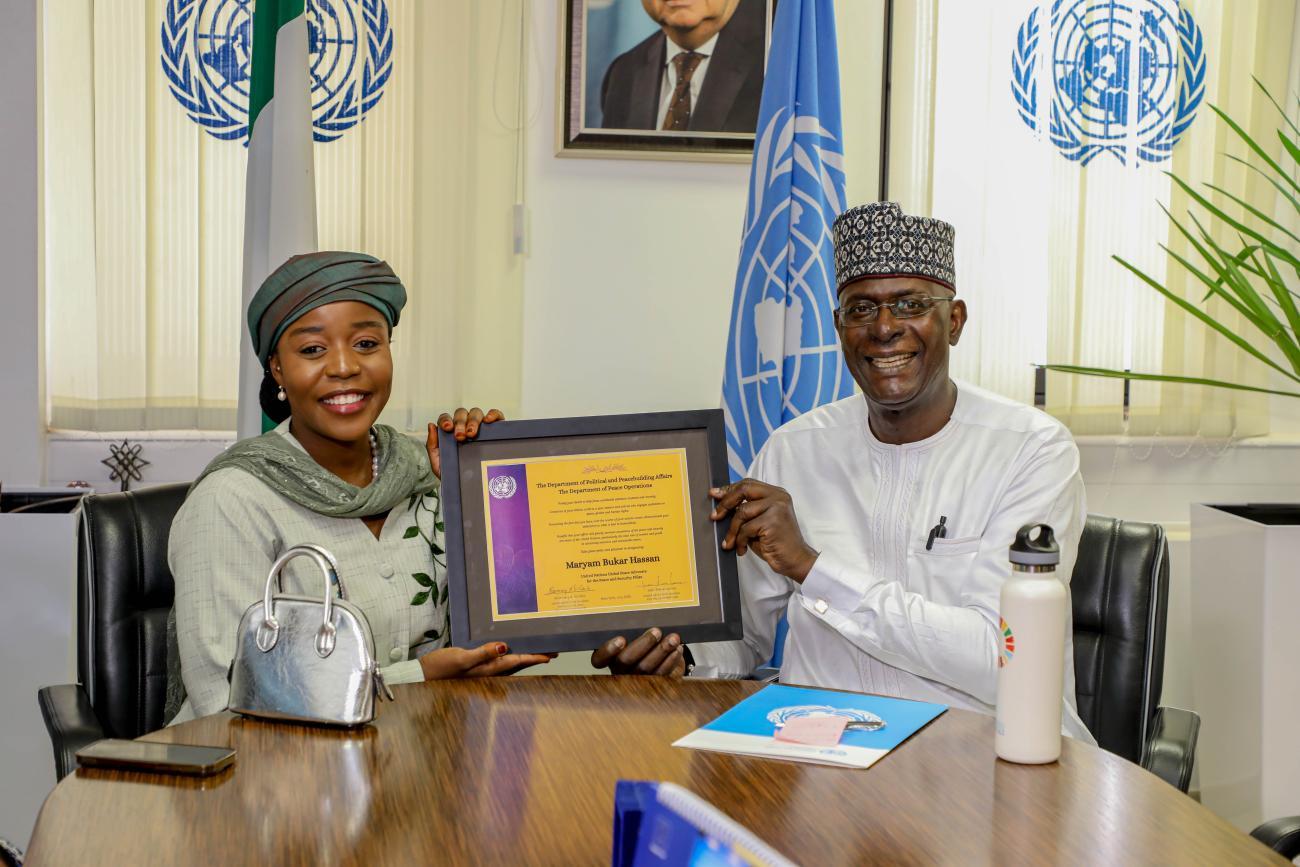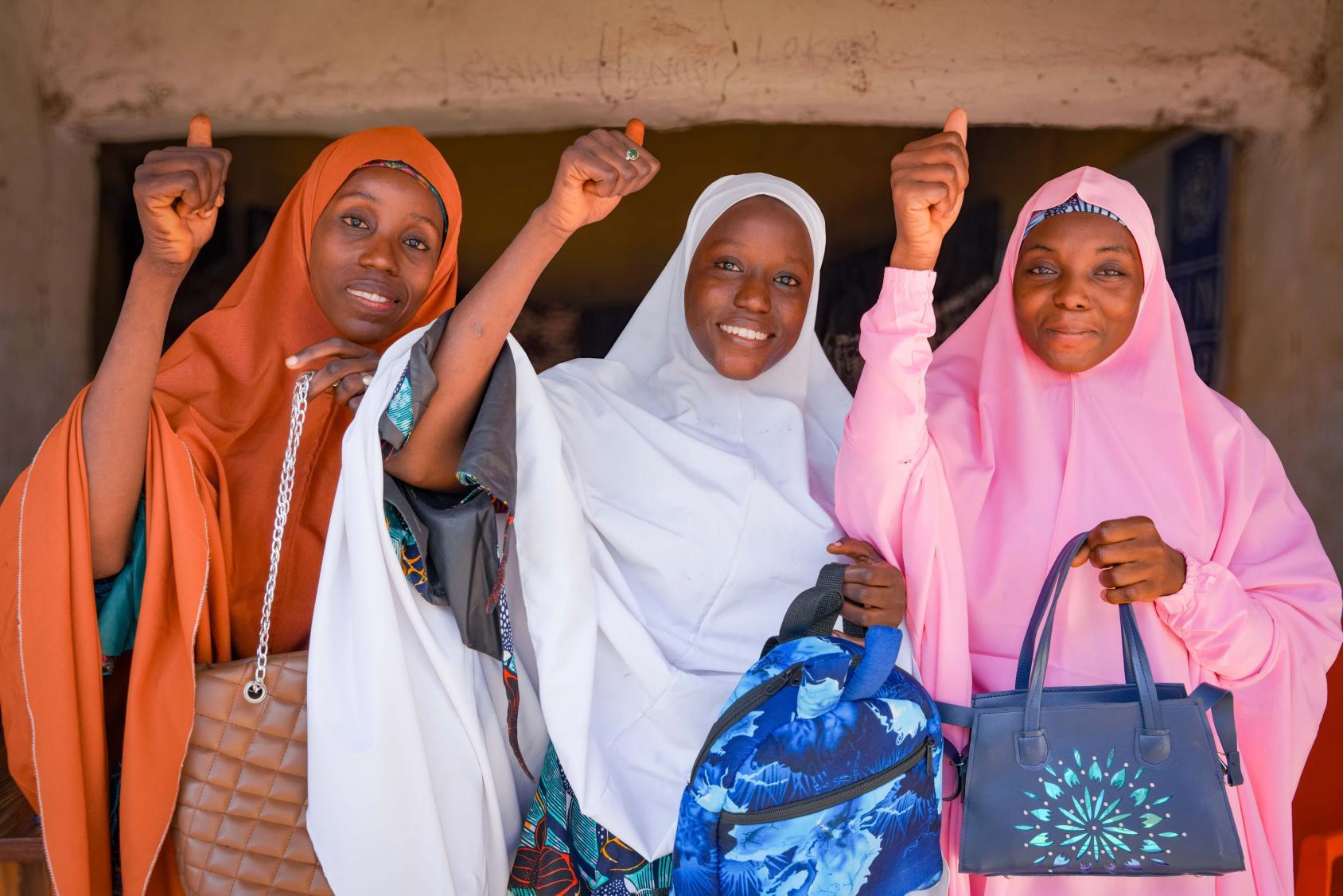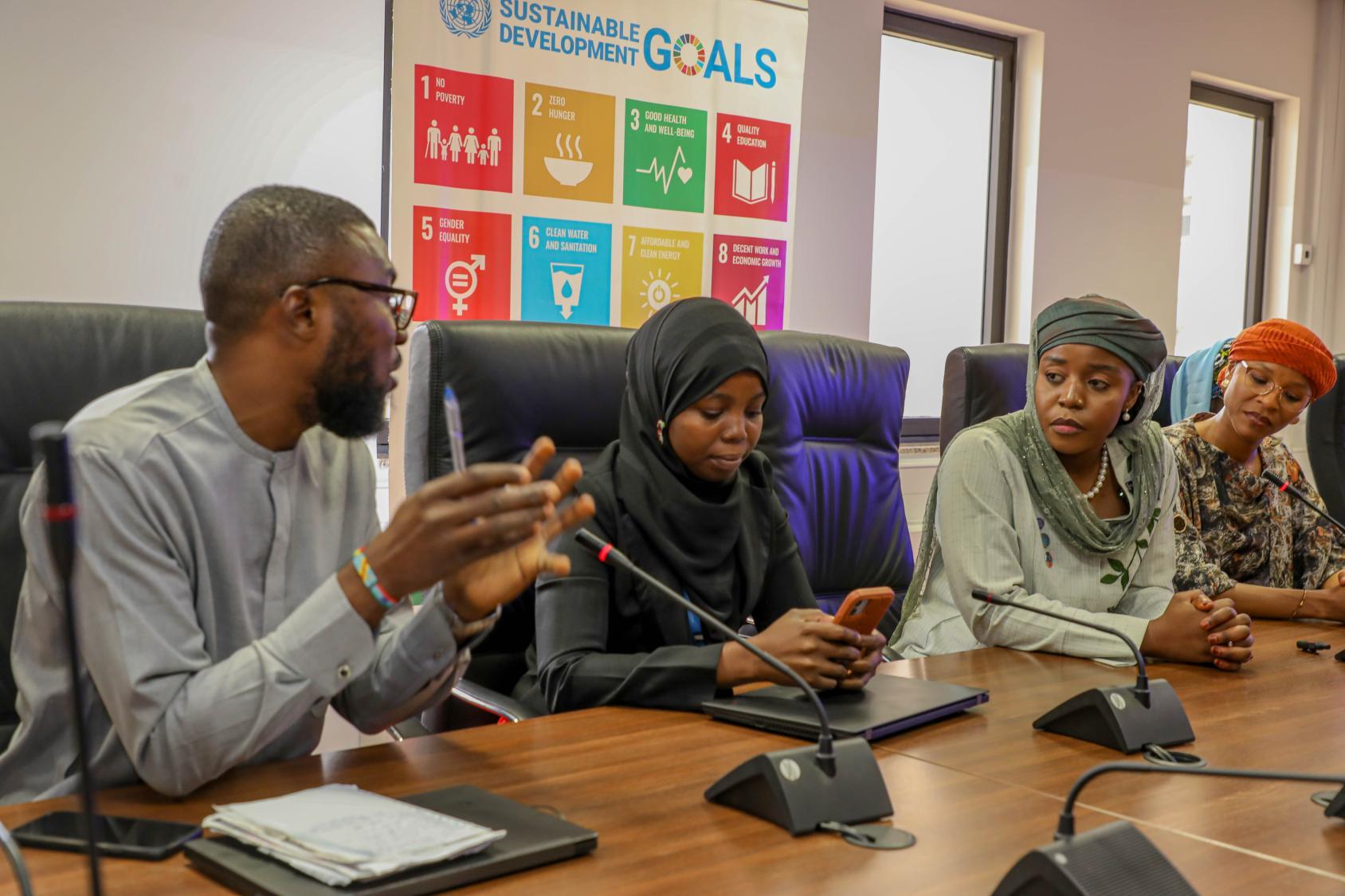From Poetry to Policy: RC Mohamed Fall and Maryam Bukar-Hassan on Culture, Youth, and Peace

In Nigeria, youth are in the driver’s seat when it comes to sustainable development and peace. In the past year, the UN in Nigeria, through the UN interagency group on Youth, has made significant strides by shaping large-scale policy shifts, enabling grassroots actions, and empowering a new generation of leaders.
With the UN’s support, policies such as the National Youth Policy, National Youth Employment Action Plan, and the Youth, Peace and Security National Action Plan, are helping institutionalize youth opportunities and leadership. Galvanizing the National Youth Council of Nigeria, an umbrella body for all youth organizations in the country, UN entities are pooling their expertise to facilitate meaningful youth engagement and participation, innovation, work, healthy living and support a sustainable future for Nigeria’s youth.

From protecting the environment to building peace, young people across Nigeria are stepping up with energy and determination. In 2024 alone, nearly 23,000 children and youth in 33 states joined hands to plant trees, promote recycling, and encourage sustainable ways of living. In five states, youth are helping shape decisions, prevent violence and foster peace. Across nine states, more than 5,000 women, both young and older, have been trained as mediators and are now at the heart of local peace efforts.
Resident Coordinator Mohamed Fall, who leads the UN country team, has championed youth empowerment, bringing together key partners and opening avenues to amplify youth leadership.
Ahead of this year’s International Youth Day, the Resident Coordinator, his office and the UN Country Team sat down with newly appointed UN Global Peace Advocate Maryam Bukar-Hassan, a poet and storyteller, for an open conversation on how youth, culture and peacebuilding intersect.
Here is a snapshot of their conversation:
UN Nigeria: Maryam, welcome to the UN House — from now on, your house. We are delighted that you’ve been appointed as a UN Global Advocate for Peace. This role comes at a time when peace is being challenged globally and here in Nigeria. We’ve seen conflict affect various hotspots across the country, linked to deep-rooted poverty, and often exacerbated by rhetoric that fuels ethnic and religious divides. Without peace, we can’t have development, democracy, or human rights. One of the first assets and opportunities in this country is its youth. That’s why your appointment is so timely. How do you see your role in this landscape?
Maryam: Thank you for the warm welcome — I truly feel at home here. You’re right: peace is the prerequisite for everything else we strive for, including the SDGs. Without SDG 16 — peace, justice, and strong institutions — investments in the other 16 goals are at constant risk of being destroyed.
My approach is to go beyond conventional narratives that frame conflict solely as “Muslim versus Christian” or “north versus south.” We must get to the root causes — the erosion of dignity, the loss of humanity. This means localizing peace efforts, reaching people in their languages and cultural contexts, and even drawing from folklore that has shaped values for generations.
Re-engineering the mindsets of adults is hard. But if children grow up with peace as a core value, they’ll carry it into their communities and the world. One of the ideas is to establishing peace circles and clubs in public schools, where cultural context guides the approach. We want to catch young people early, so peace becomes part of their identity. We’re also creating a Peace Prize in schools to encourage public speaking and dialogue on conflict resolution.
Stories are sometimes very underestimated. If we can truly harness the power of storytelling, then there would be a way forward. We as this generation coming must acknowledge our past and the hurt, but also then look to how we can pave the way forward. We shouldn't pay the price for the mistakes of forefathers; because the more we keep dragging ourselves and the next generation into it, it becomes a cycle and there can never be peace.
UN Nigeria: Where does your passion for being a messenger of peace stem from?
Maryam: Peace is a recurring theme in my work because my life has been shaped by violence. At just four years old, I narrowly escaped death during a religious crisis in Sabon Tasha, Kaduna State. My mother had recently divorced and moved back to her family home. While she travelled to Aba to buy clothes and support us, armed men stormed our neighbourhood, targeting Muslims. Our Christian neighbour claimed my grandmother as his wife to protect us. That act saved our lives.
Later, we moved to Kawo and Ungwar Rimi, both crisis-prone areas. I remember the fear, the gunshots, the checkpoints, and the smoke. I’ve witnessed ethnic, religious, and electoral violence. Being from Borno State, I’ve also felt the impact of Boko Haram. Friends and relatives were lost. These experiences made me realise that peace is the bedrock of humanity. Without it, education halts, development stalls, and lives are shattered.
That’s why SDG 16: peace, justice, and strong institutions is foundational. In my work, peace appears in many forms: personal, communal, and national. I’ve lived through trauma, and I’ve chosen to transform it into purpose.

UN Nigeria: How can creative arts be a catalyst for the Sustainable Development Goals?
Maryam: With less than five years left to achieve the 2030 Sustainable Development Goals, we must rethink our approach. Creative arts can accelerate progress. Art has always been a powerful tool for communication and transformation. From ancient times, stories have inspired action and shaped societies.
Whether you're Christian, Muslim, Jewish, or of any faith, you’ll notice a common thread in historical films like Troy, 300, or King Arthur. When soldiers lose momentum, the General regroups them with words: mantras that reignite their spirit. That is poetry. That is art. The human spirit yearns for words because we are made of electromagnetic energy, and spoken words travel infinitely. They circle back, whether we realise it or not. That’s why I emphasise intentionality in art, especially poetry. Words have power. They shape reality. Before I begin anything, I look in the mirror and speak life into myself. I reject the idea of waiting passively for success. What takes a month can be achieved in a day. Speak it. Believe it. Act on it.
We must embrace creativity, and find new paths, even if we get lost along the way. If we do this, five years is not too short. We may not achieve everything, but the world will know we tried.
For more information about the UN's work in Nigeria, visit nigeria.un.org.













